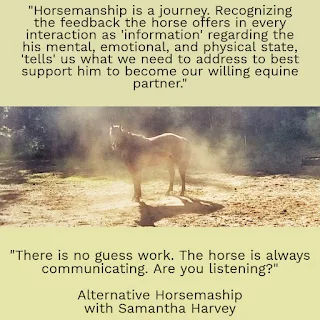What is an Alternative Horsemanship Full Immersion Clinic?
Developed to create various learning opportunities to help equine enthusiasts refine their understanding of equine behavior and communication. Sam includes numerous topics with participants learning while unmounted and mounted, and in individual and group sessions. These safe, fun, and supportive learning scenarios offer an in-depth, full-immersion experience.





